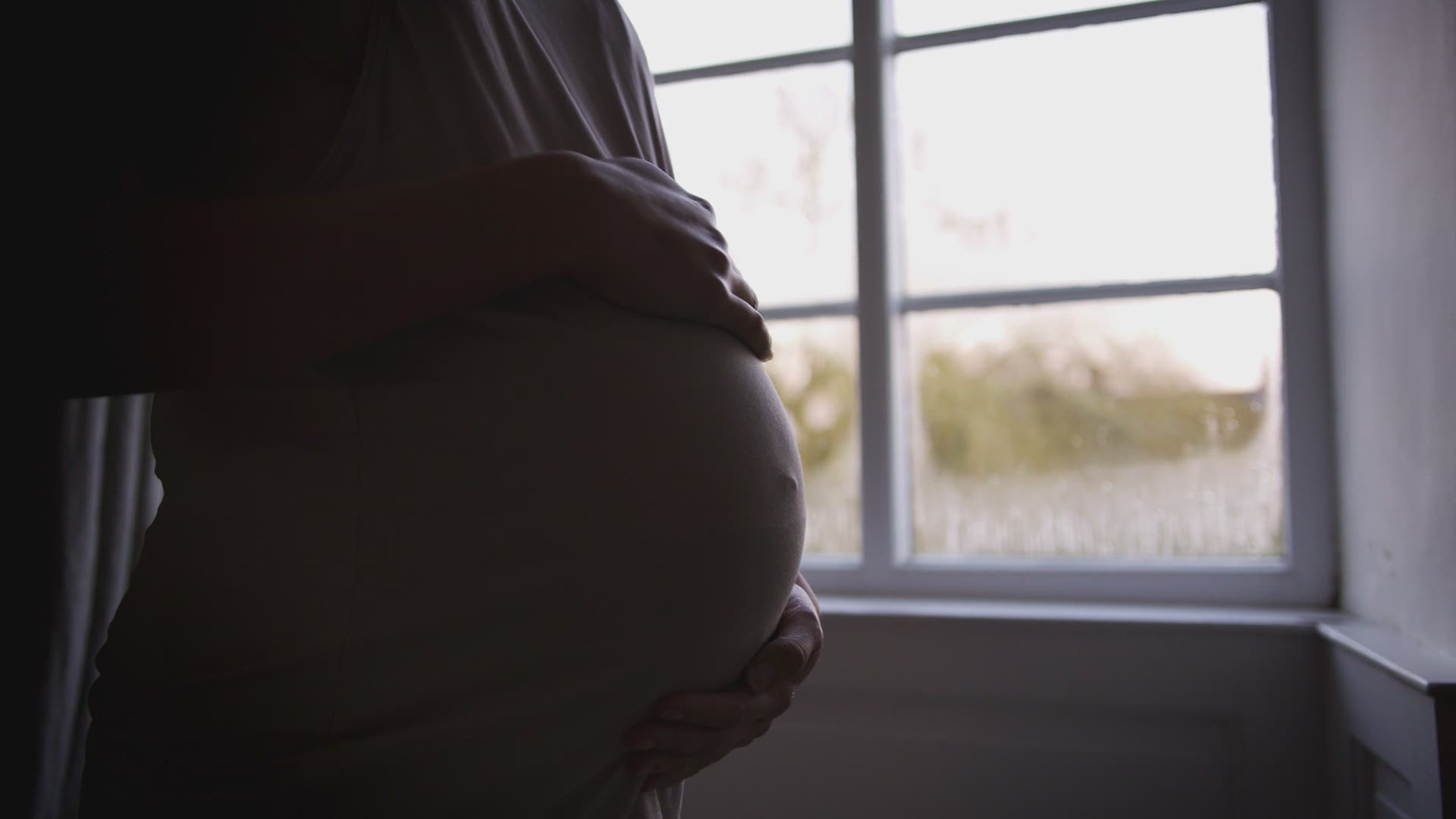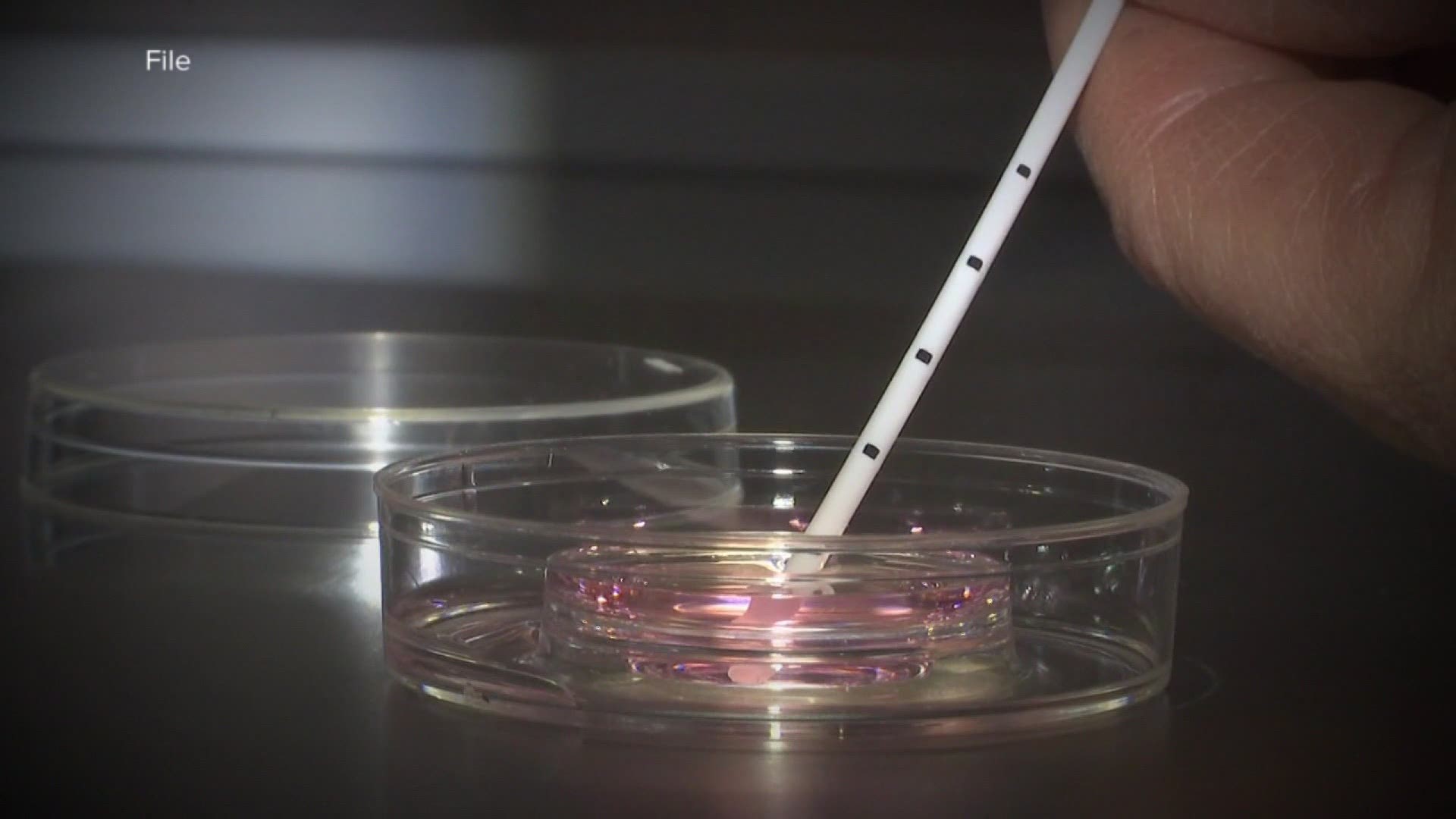GRAND RAPIDS, Mich. — Struggling with infertility is a challenge many couples face. Many of these cases can be solved with medical interventions, like hormone treatments or in vitro fertilization.
But for some couples, those steps aren't enough and they need the assistance of an egg donor.
And for minorities -- their egg donor journey often comes with an unexpected hurdle.
13 ON YOUR SIDE producer Rhonda Spencer met the love of her life, Jamal, at Michigan State University. This dynamic duo has a passion for journalism and deep love for each other.
Having children is something they've always wanted, but they knew their path to parenthood wouldn't be easy.
"Even back in high school doctors told me there might be an issue with fertility, but 'we'd just have to see,'" Rhonda recalled. So, they started researching.
"Turns out it wasn't just a simple IVF situation, we actually needed an egg donor," she explained.
That was a difficult reality to come to terms with.
"I was crushed, to be completely honest, because as a woman you think about having a baby and starting and family and what that is going to look like and I never imagined we would have a baby and it would not biologically belong to me."
It took time for Rhonda to grieve. When it came time to look for a donor, they were hit with another blow.
"Then we find out that here in West Michigan there are no black donors available for us. As a black woman I want to have a black child. It was a hurdle that I hadn't even thought about would be an issue and to find out that there were none, not one, was very shocking to me and heartbreaking."
"Over the last three years we have had about 1,000 egg donor applicants," explained Robin Strouse, RN, who serves as the Donor Coordinator at the Fertility Center in Grand Rapids. "A very small percentage of them make it through the screening process. Of those who applied, 80% were Caucasian, 15% were African American, 5% were Latina or other. We simply don't have a lot of women of color applying to be an egg donor."
So, why aren't there more black egg donors in West Michigan? The answer isn't a simple one.
"One, there is fear of the medical system. Going into the doctor's and not being cared for rightly. Two, is education. A lot of young black women don't even realize it's an option," explained Chicago pastor Rev. Dr. Stacey Edwards-Dunn. She says fertility is something that isn't often talked about in the black community. That's why she founded Fertility for Colored Girls in 2013 after struggling with infertility herself.
"I would have never thought it was infertility. We were taught, we believed that we were these strong black fertile women. I would find out that was not the case."
After founding FFCG "women started coming out the woodwork wanting to talk about it."
Now, Rev. Dr. Edwards-Dunn is working to change the narrative around infertility and things like egg donation so more couples can find the solution they are looking for.
Continue following this story on 13 ON YOUR SIDE Mornings. On March 3, find out how Rhonda and Jamal decided to move forward. And hear much more from Rev. Dr. Edwards-Dunn about what she thinks will bring change.
RELATED VIDEO:
►Make it easy to keep up to date with more stories like this. Download the 13 ON YOUR SIDE app now.
Have a news tip? Email news@13onyourside.com, visit our Facebook page or Twitter. Subscribe to our YouTube channel.


